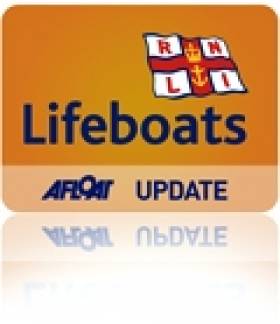Displaying items by tag: Shenick Island
Skerries RNLI Responds To Concerns Over Shore Walkers
#RNLI - Skerries RNLI in North Co Dublin were requested to launch by the Irish Coast Guard on Monday evening (24 June) following a call from a concerned member of the public regarding a group of people walking back to shore from Shenick Island.
The volunteer lifeboat crew launched their inshore lifeboat Louis Simson shortly before 9pm and proceeded directly to scene.
The caller had reported that the group were attempting to walk ashore from the island and were already in water up to their waists. However, shortly after arriving on scene, communication was received from Skerries Coastguard that the people in question had made it safely to shore.
Before returning to base, Skerries also requested the lifeboat to check on another group of people who were on the shoreline of Colt Island. This turned out to be a group of kayakers who were simply having a rest so the lifeboat was stood down and returned to station.
Speaking afterwards, Skerries RNLI volunteer lifeboat press officer Gerry Canning said: "It’s not unusual for people to get caught out by the quickly rising tide. We would encourage people to check the tide tables and always allow plenty of time to get to where you are going safely."
In related news, an updated and interactive edition of the RNLI’s safety handbook Sea Safety: The Complete Guide is now available free online.
The Complete Guide is the RNLI’s handbook of essential information for all those who go to sea. Its new interactive format – including videos, quizzes and challenges - means that sea safety is available on mobiles, tablets and laptops and at the tip of boaters’ fingertips.
RNLI coastal safety manager Tony Wafer said: "The Complete Guide gives more in-depth advice on how to follow these principles and stay safe on the water. It’ll cover everything from how to plan your time on the water, what safety equipment to take and how to use it, and what to do in an emergency."






























































